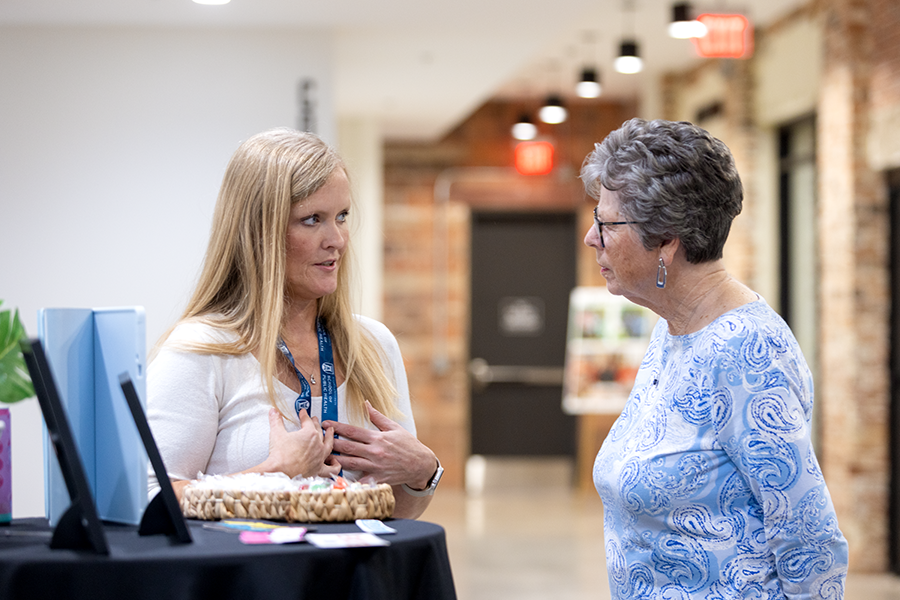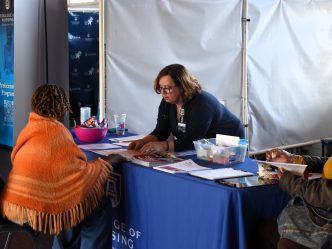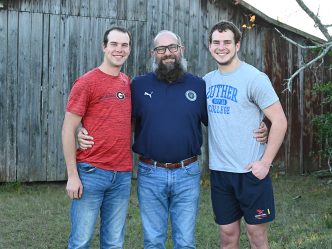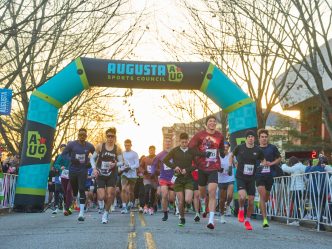Starting a small business comes with challenges. It takes planning, funding, persistence and a willingness to take risks. But for individuals in recovery from opioid and substance use disorders, these challenges can feel even greater as they work to rebuild stability, trust and confidence in themselves.
Over the last several years, Vahé Heboyan, PhD, and Marlo Vernon, PhD, from Augusta University’s School of Public Health and their community partners have been working with a dozen rural counties in northeast Georgia to provide medical, recovery and prevention support from opioid and substance use disorders. These initiatives are funded by a multi-year $1.5 million program – the Access to Services for Pregnant and Postpartum Persons in Northeast Georgia program – funded by the Health Resources and Services Administration’s Rural Communities Opioid Response Program.
During the implementation of these projects, the researchers realized that economic hardship and financial instability, along with lack of access to transportation, significantly hinder recovery outcomes from opioid and substance use disorders. Individuals facing poverty or unstable housing often struggle to access consistent treatment, medications and support services. Financial stress can exacerbate mental health challenges, increase the risk of relapse and limit opportunities for employment and social reintegration.
As a result, Heboyan and Vernon, in collaboration with Gianluca De Leo, PhD, department chair of the Department of Health Management, Economics, and Policy in the School of Public Health, launched the Empower Entrepreneurship Capacity Building Program and a small business pitch for individuals in recovery from 12 rural counties in Northeast Georgia.
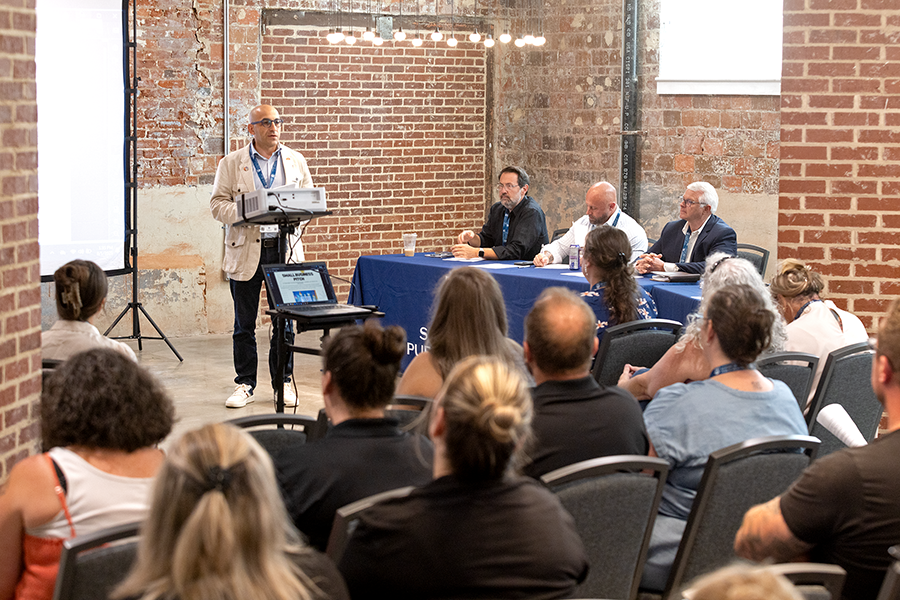
“Larger urban areas have access to many resources – the money, capital, employment opportunities and so on – that rural areas do not typically have. It is not only typical to Georgia, but also all over the United States and internationally as well,” said Heboyan, a professor in the Department of Health Management, Economics, and Policy. “Economic hardship becomes the key to many living in rural areas, not only individuals in recovery, but also just individuals in rural areas in general. So, when you invest in small businesses in rural areas, what this does is it not only creates sustainability for a particular family, but as the business becomes successful, it is going to start having the so-called snowball effect on many others in the community.
“As these businesses grow, we are talking about additional employment opportunities, additional tax revenue for the local government to be able to do projects of public significance and so on,” Heboyan continued. “So, the advantages are very large. The rural areas are resource-scarce, so that is why it takes an extra effort to be able to do it. Projects where the initial idea is to make sure we support their recovery, providing sustainability tools and financial stability are key components that need to be tackled before we can claim that there is a sustainable recovery effort.”
The team spent several months earlier this year traveling to Jackson and Stephens counties, where they trained a group of 21 people in recovery on the principles of small business ownership and management. The training included access to Make Startups’ software that uses AI to help with many of the pitfalls of starting a small business from scratch, which proved to be a game-changer as many of the participants had never started a small business before.
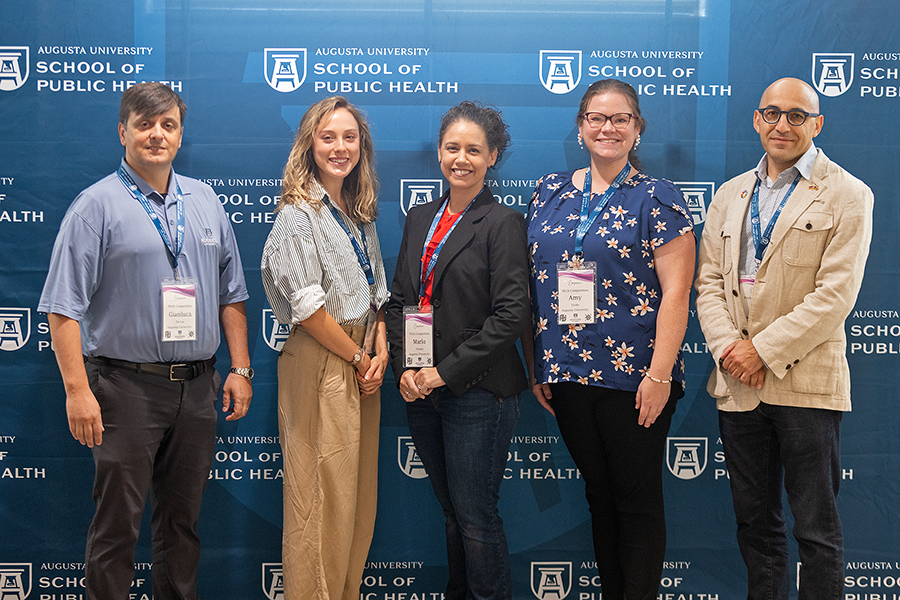
The program was also supported by partnerships with REBOOT Jackson RCO and Self-Discovery 24 RCO. These community partners were instrumental in recruiting and providing the logistical support for these trainings. The program culminated with participants crafting a business pitch with the team, focusing on ideas that had the promise to envision a new future for the trainees and their families.
“One thing that we recognized with our participants in ASPiriNG is the need to have financial stability, and the important role financial stability and a strong support system can have on people remaining in recovery long term,” said Vernon, an associate professor in the Department of Health Management, Economics, and Policy. “We know that financial insecurity is a risk factor for relapse, and when we are dealing with moms and families, that becomes even more elevated. With the background that Dr. Heboyan and Dr. De Leo have in entrepreneurship, we thought, ‘Why don’t we look at ways to support our participants in developing small businesses that would help financially support their families?’ We were not looking for someone to establish the next Apple or Amazon, but just something small, feasible, but also a business that can provide financial security for our participants. And that is how Empower grew out of this.”
At the end of the six-week Empower program, eight of the 21 individuals felt comfortable enough with their progress to present their ideas to a panel of judges in a “Shark Tank”-style pitch competition with $26,000 available to be spread across the top four startup awards. The judges included Eric Parker, president and CEO of Make Startups; Nick Morrill, chief operating officer at Rise Athletic Performance; Bradley Cook, an established entrepreneur in the Athens, Georgia, area; and De Leo.
For Morrill, the chance to support his peers in recovery was an opportunity for which he was grateful.
“As a person in long-term recovery, it’s heartwarming to see the level of support and opportunity that the recovery community is being provided. Anyone who has been around recovery knows the pathways are full of trials, setbacks, barriers and, for the most part, an uphill battle. Conversely, you’ve probably seen that if you can align a person in long-term recovery with the right roadmap to success, no one will outwork them or solve problems faster in the pursuit of that objective,” Morrill said. “These are the things I have seen, experienced personally and believe should be showcased. It is that experience that has led me to believe that recovery is not about survival but about creating an abundant and impactful life.”
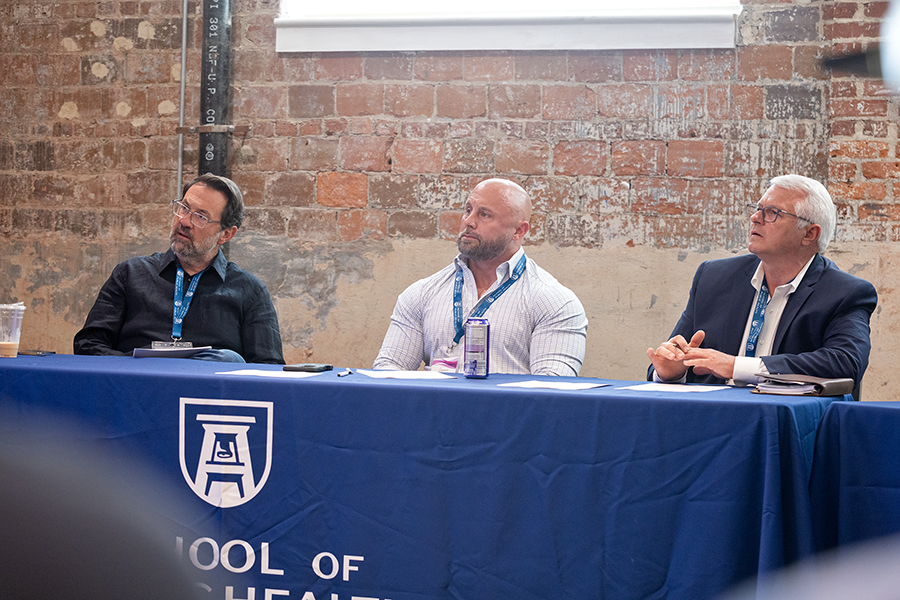
While it was structured as a competition, the event’s primary focus was on ensuring everyone’s success and helping them take those initial steps. Each presenter acknowledged that a supportive community is essential for maintaining recovery, and they all cheered and clapped loudly for one another as they presented. This sense of community was evident from the start, as the eight participants hosted product or service demonstrations before the main event.
In the hallway outside the meeting room, each person set up a booth showcasing their small business. The judges and attendees were invited to visit each table to learn more about the products and services and connect personally with the entrepreneurs behind them.
The ideas on display included a food truck, an event photo booth, a mobile spray tan business, a professional paint company, a tiny home community for individuals in recovery, a ceramic studio, a cleaning business and a high-end mushroom farm. The entrepreneurs themselves were at various stages of their recovery journeys, ranging from two to 17 years.
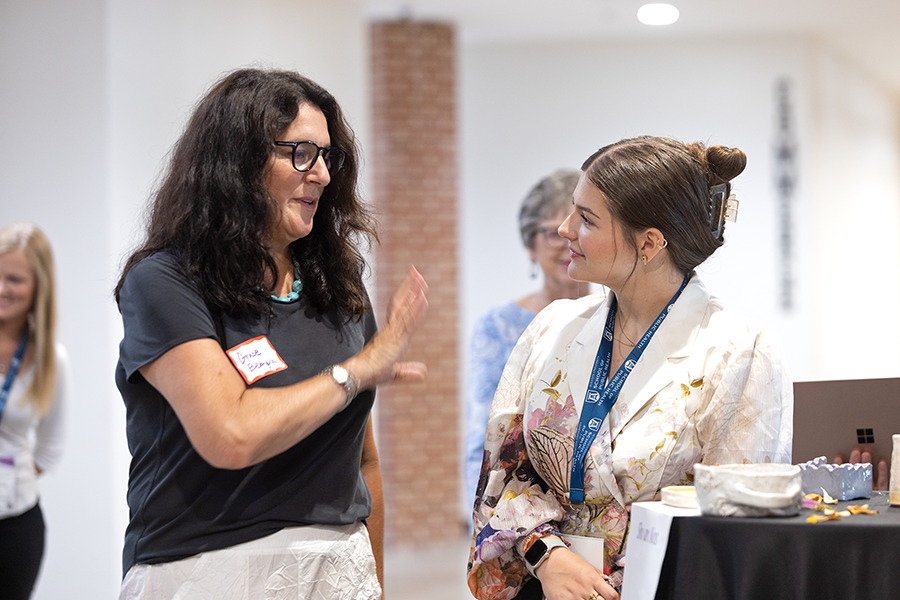
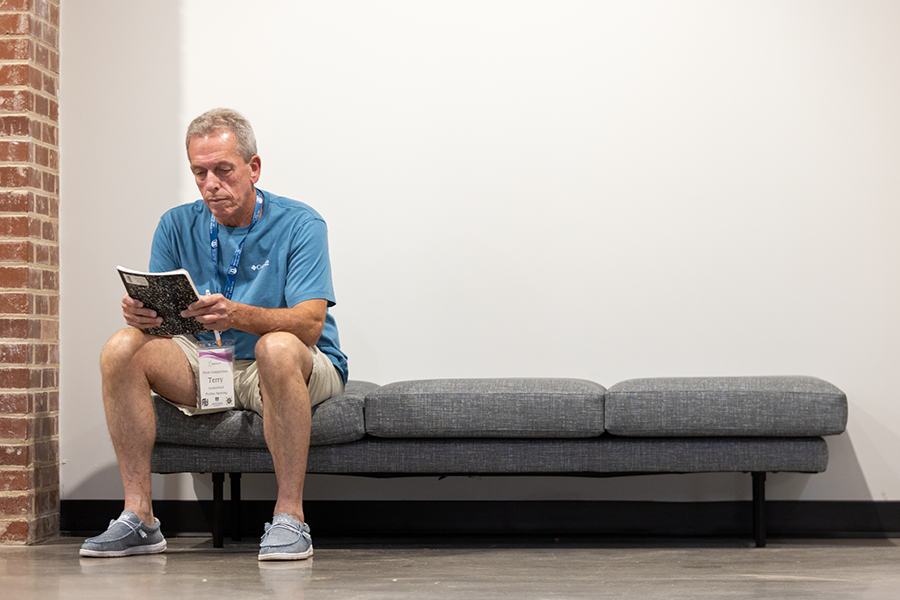
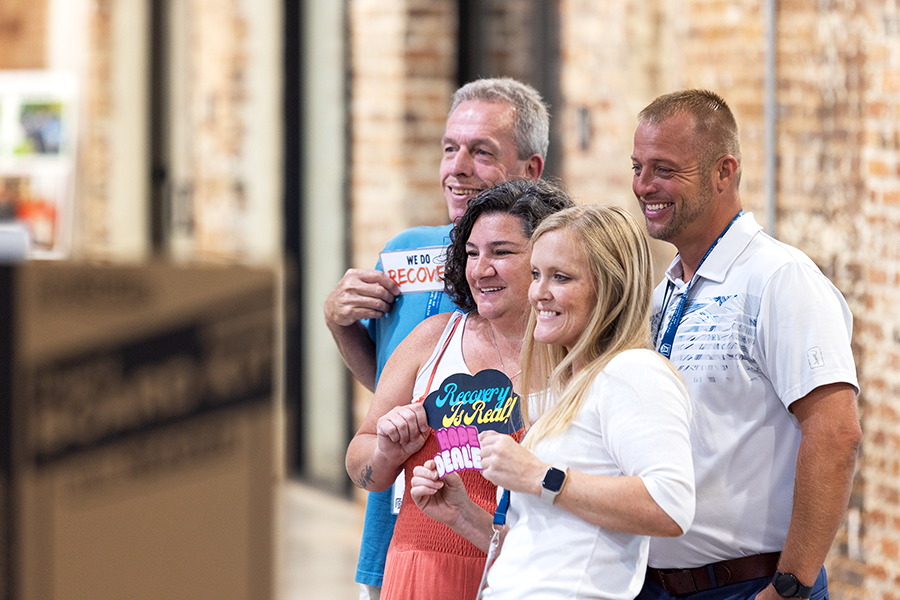
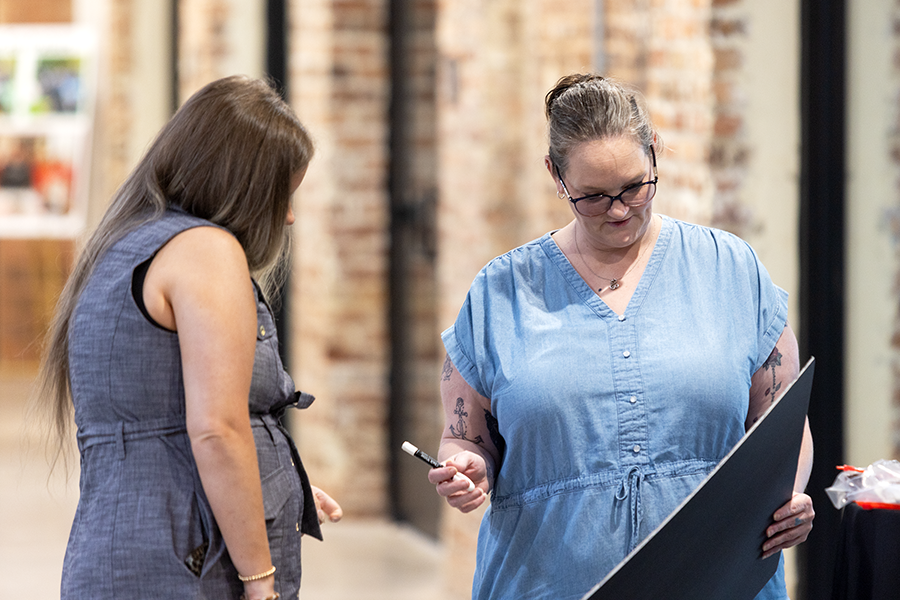
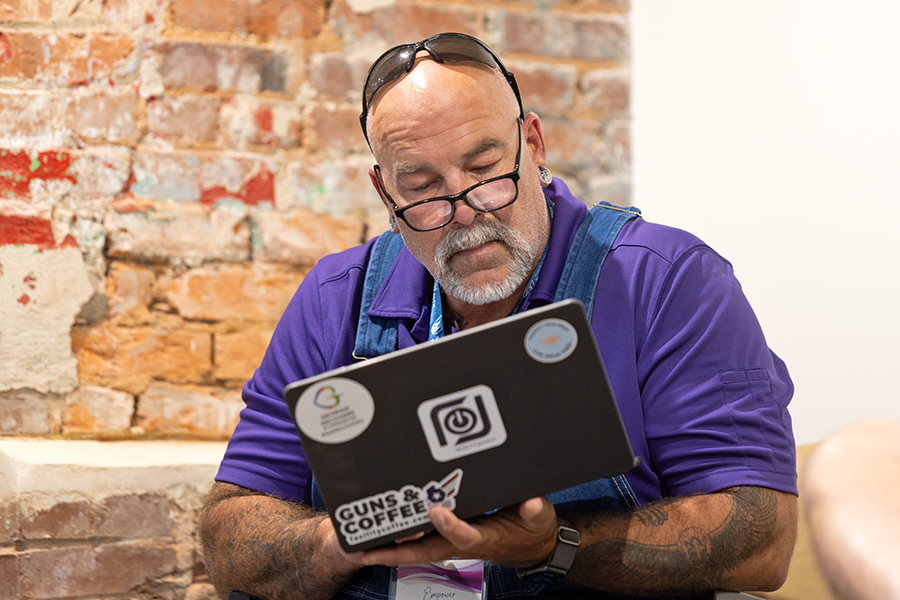
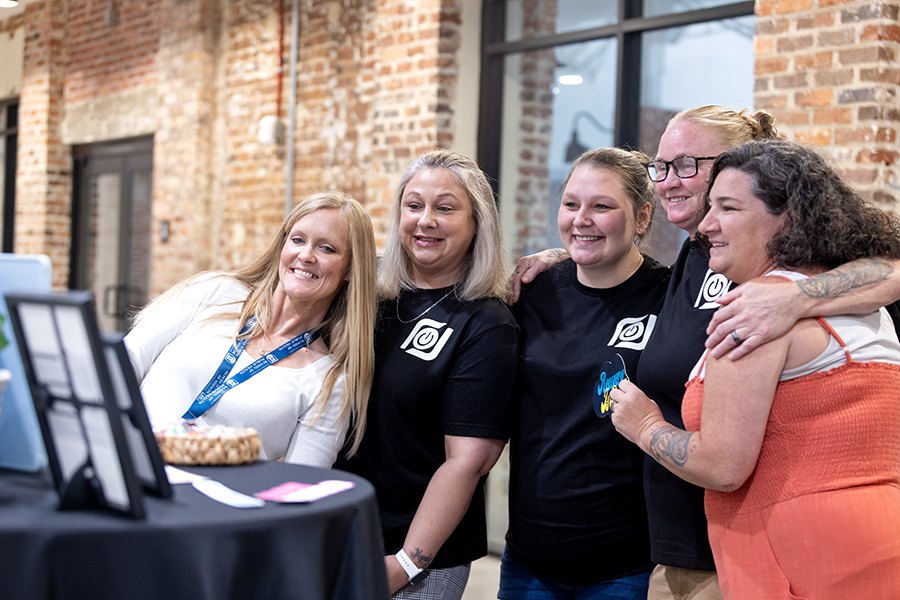
Jon Langston, who has been in long-term recovery for 17 years, knows firsthand the importance of community and mutual support. As part of his mission to help others in recovery, Langston co-founded REBOOT Jackson with his wife, Jenn.
The pitch competition was a great example of this community spirit. Before the competition, they visited each other’s booths, offering words of encouragement and even helping with some final pointers.
“One of the things that I truly have a passion for is taking people that come into recovery and helping them get a foot into business because they are some of the most loyal and hard-working people you will ever meet,” said Langston, who has experience in a variety of fields, including starting a few small businesses prior to taking part in the program. “If you give them a leg up, then on the other end, they are going to help you. They are going to give back, so that is my goal. My vision is to be an entrepreneur’s entrepreneur.”
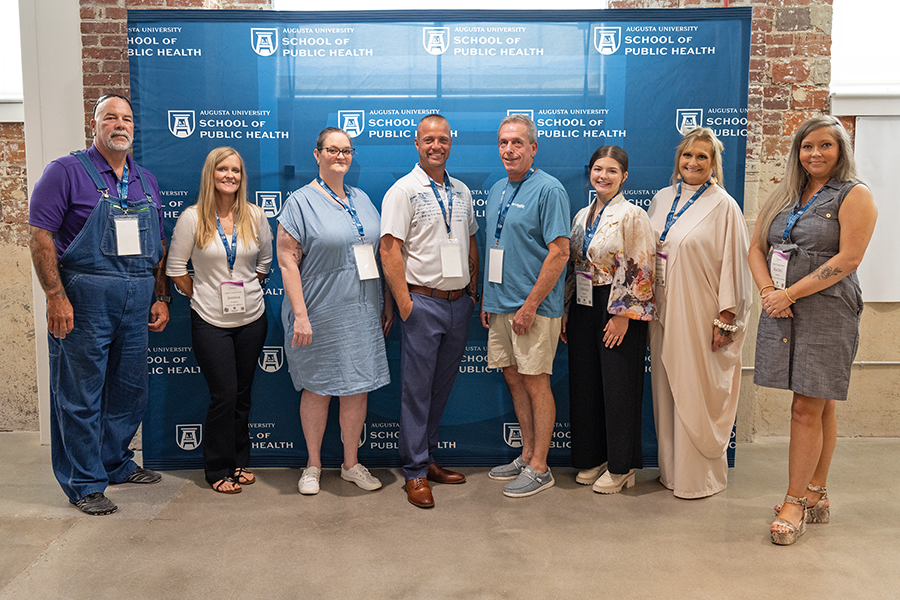
As each person presented, the other seven participants and their families, friends and other supporters listened, photographed, filmed and cheered them on as they presented. After each presentation, the judges were invited to ask questions to get the fine details and help with their final decision.
“Having a loving community, connection, opportunity and striving to live such an abundant life, leads to the ability to pay it forward to the next people in,” Morrill said. “This competition was a stunning example and representation of that concept. The room wasn’t only filled with opportunity for the participants, but you could sense the healing happening as you watched others invest and believe in each other. Progress was made, lives were changed, and pathways were created. It doesn’t get much better than that. This was truly a full-circle experience, and I couldn’t be more appreciative to be a part of it.”
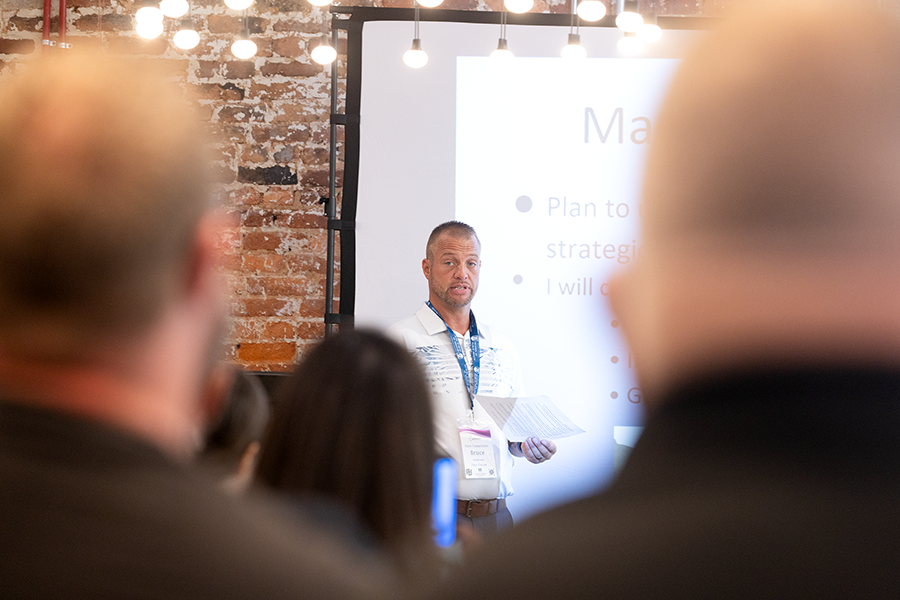
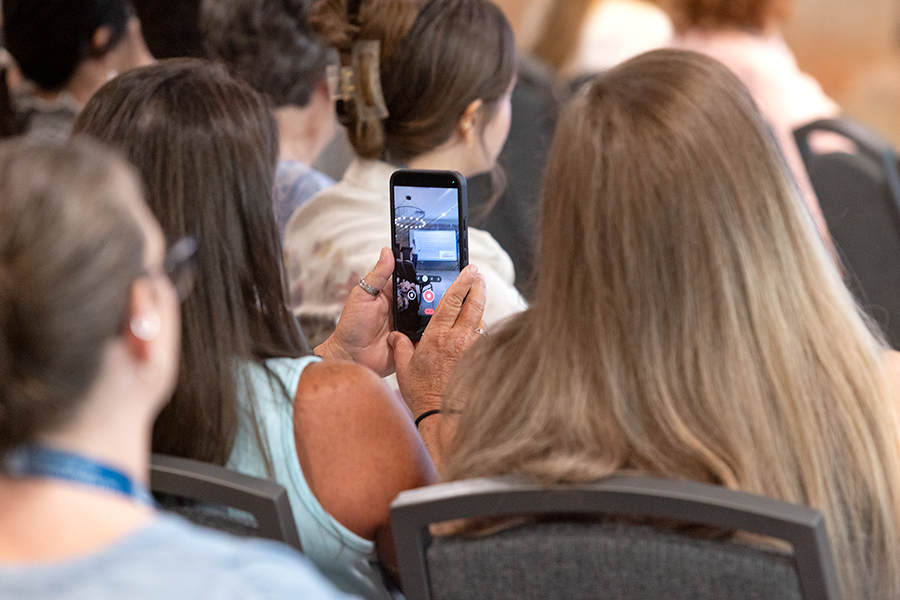
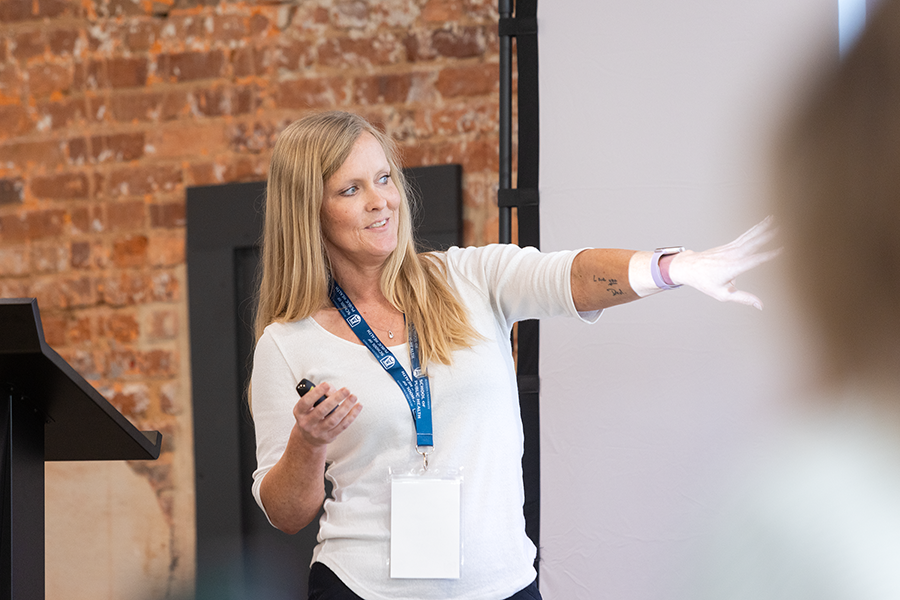
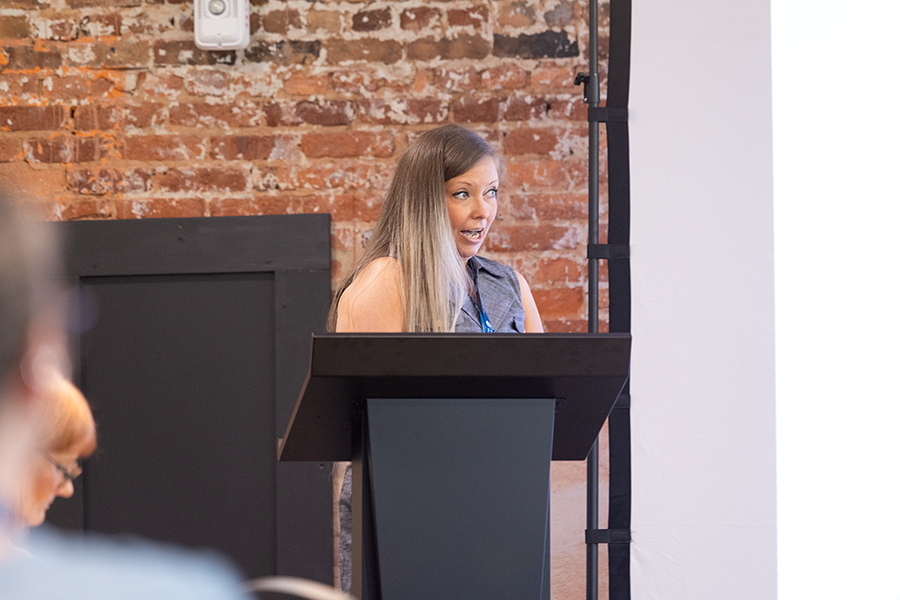
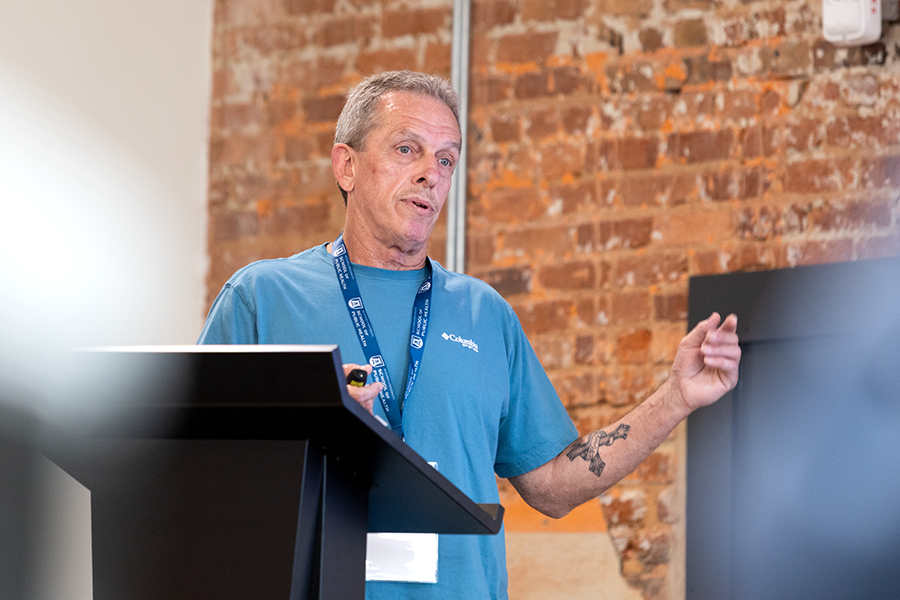
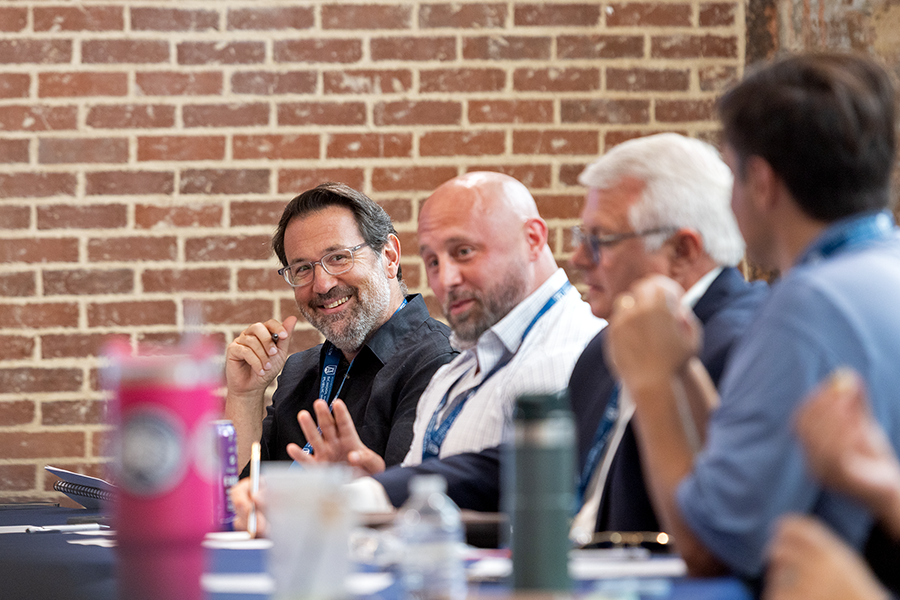
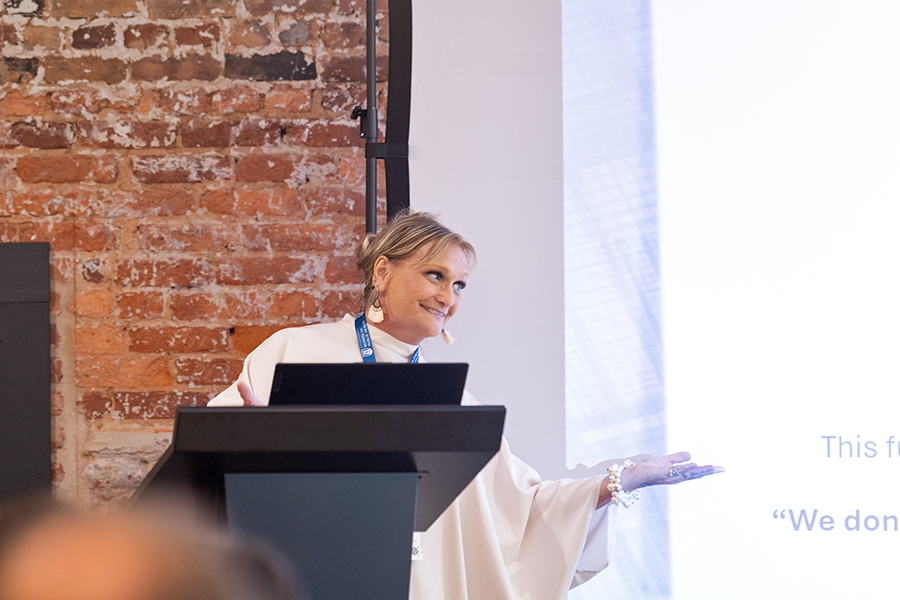
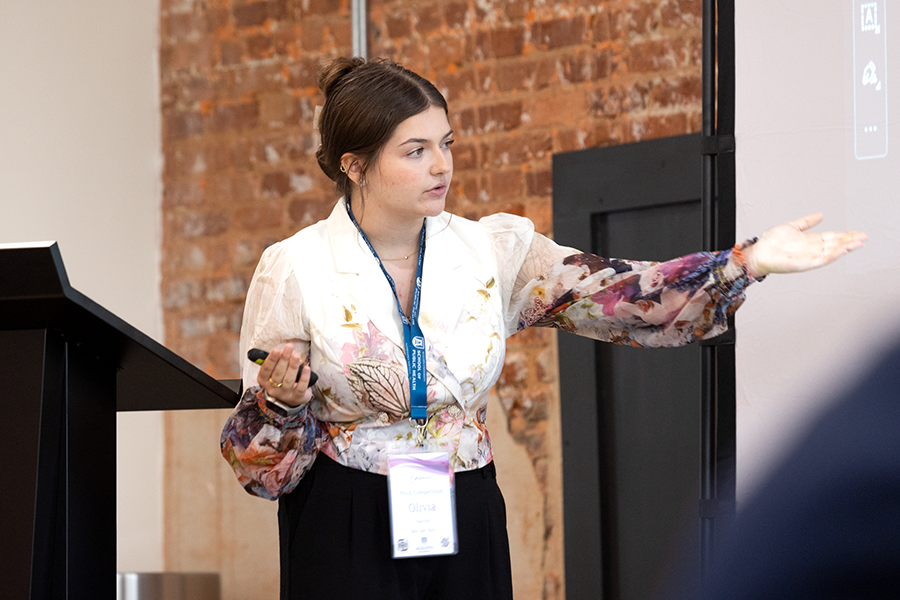
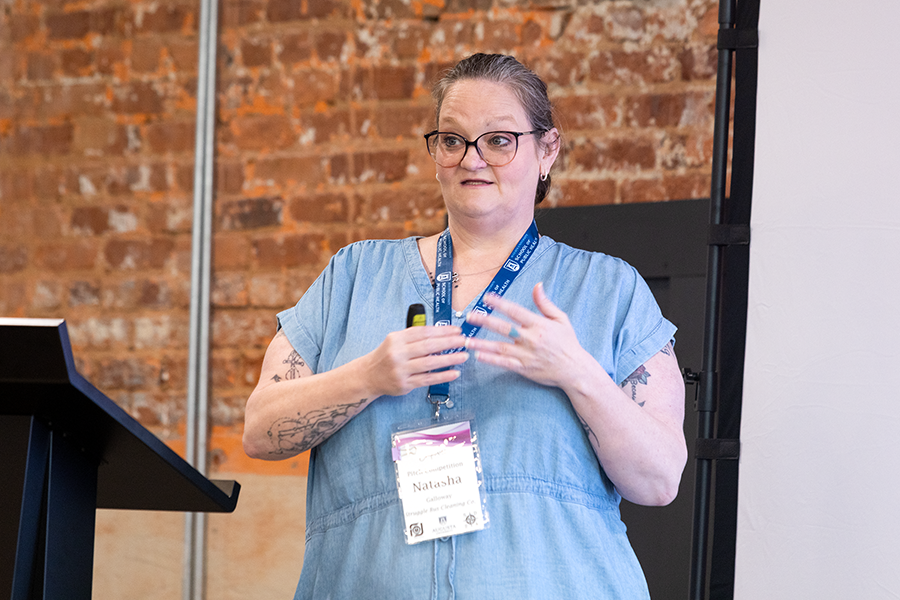
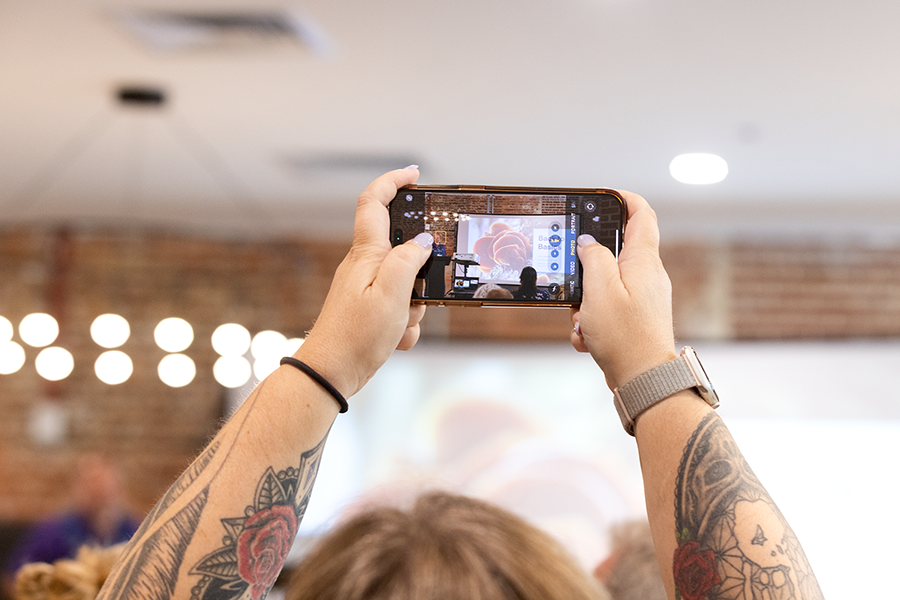
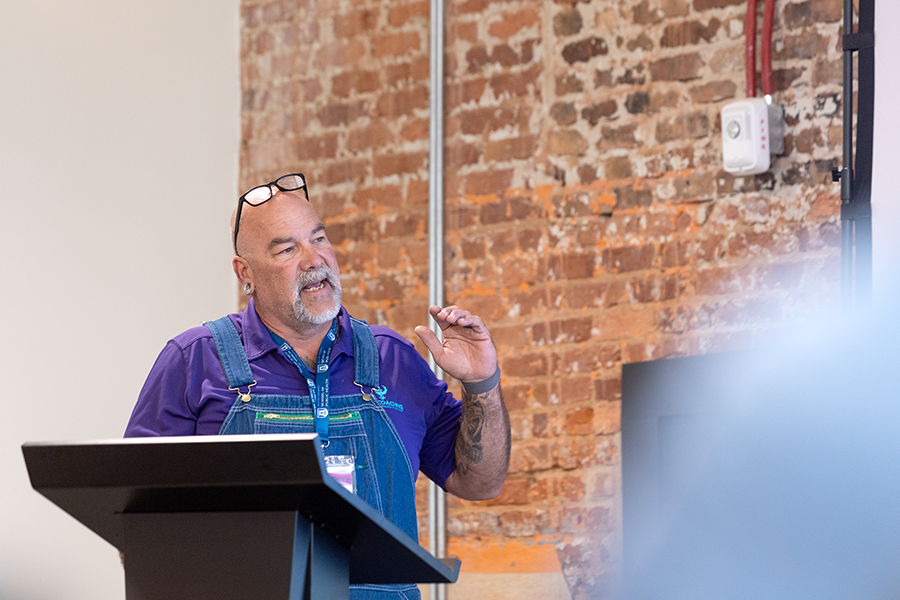
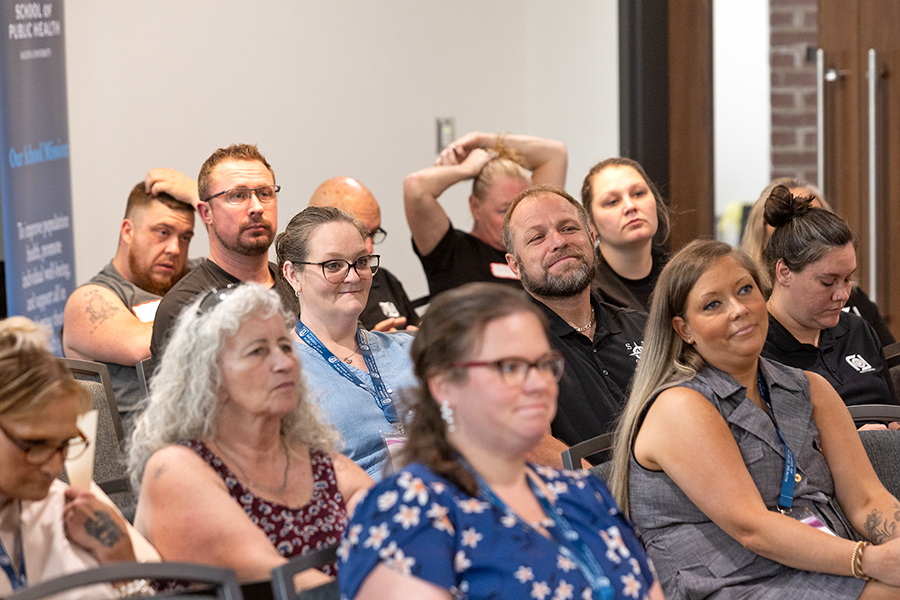
With only four top awards available and eight participants, some might have thought a few of the participants would go home empty-handed. However, each participant received $500 upon completing the training, a celebration of their achievement and a boost to help develop their ideas. The four presenters who did not win a top award each received an additional $500.
The top prize of $8,000 was awarded to Langston for his mushroom farm, Shroom to Table. Jessica Scoggins’ photo booth idea, Connect and Capture, earned her $7,000, while Rachel Andrick received $6,000 for her mobile tanning and spraying business. Terry Stubblefield took home $5,000 for his painting business, Proline Painting.
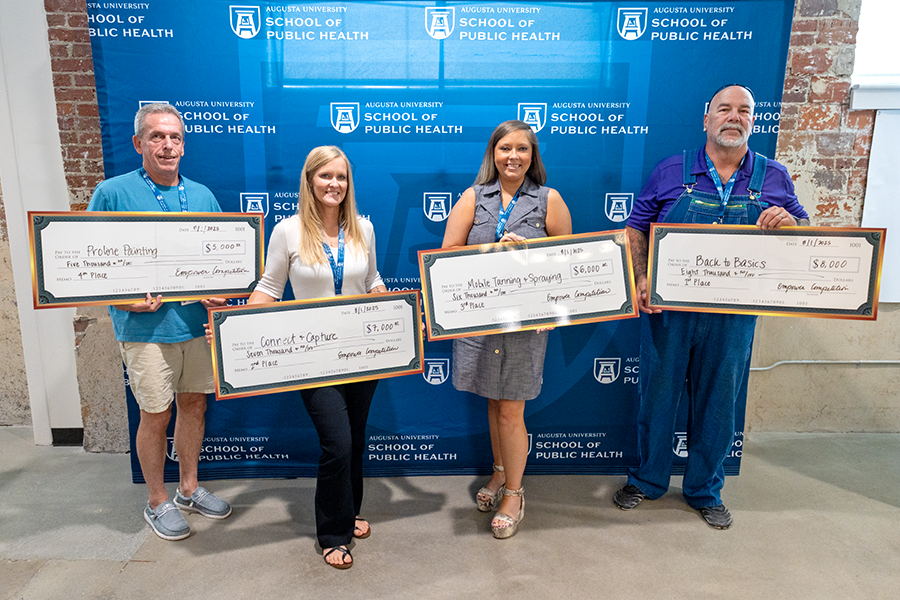
Langston’s inspiration for his mushroom farm came from his desire to live a healthier lifestyle. After 25 years of using drugs, he wanted to make a change. He started using mud water – coffee that contains nutrient-rich mushrooms – and noticed an improvement in his cognitive functions. Langston decided to use his connections in the food and beverage industry to break into a new market.
Having worked in construction most of his life, Langston thought he was relatively healthy but knew he was overweight. When his wife started working out, he joined her and lost 60 pounds over two years. He now eats better and exercises five days a week. However, he still lacked the mental sharpness he wanted. The years of drug use had taken a toll on his brain, so he started looking for ways to improve it.
That’s when he began reading about mushrooms and their benefits for brain health.
“One of the things I got to looking at was the health benefits mushrooms have with the brain chemistry and how it affects the neurological transmitters in the brain. Drugs do the same thing, but they destroy them,” Langston said. “So, I began drinking this mushroom coffee about two years ago. Before, if it weren’t for a calendar, I would be lost. I couldn’t remember the things I needed to do without that calendar, and so I began using mud water, and things have really changed.”
Two years after starting to drink mud water, he is able to not rely so heavily on his calendar to help with the multiple businesses he helps with, but in talking with friends in the food and beverage industry, he decided to pivot his idea away from mud water and more toward high-end mushrooms.
“I have some really good friends who work at high-end restaurants, and they were like, ‘Yeah, the coffee’s great, but this is what you need to be working on.’ That’s what helped me start looking into the cookable, high-end mushrooms,” he said.
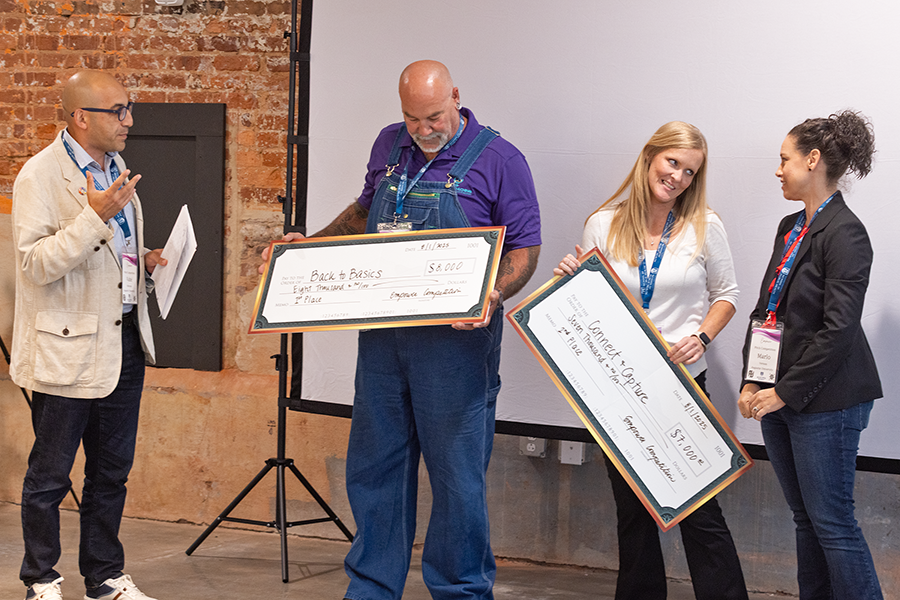
For Scoggins, she wanted to create something that would not interfere with her current day job but could be done in conjunction with it. It is a point of pride that she will have something she never had before – her own business – and it is something her kids will be able to help her with.
“I have never been a business owner before, so I am very excited about that,” she said. “It means that I can pay off some debt and have something for my kids to help with. They can work, and it means that I can be a little bit more financially stable and be more connected in my recovery community as well.”
Scoggins, who has been in long-term recovery for 10 years and will celebrate 11 years in December, noted that the hardest part was not necessarily learning something new; it was battling her own negativity.
“There was a lot of negativity in my brain, like, ‘I do not think you can do this,’ and ‘You know, you have got too much going on,’ or ‘You are not smart enough.’ But I just reminded myself that it is worth a try, and I do not have anything to lose,” Scoggins said. “I just had to remind myself that everybody is just like me, and they started somewhere, and it is never too late to start something.”
 Augusta University
Augusta University
